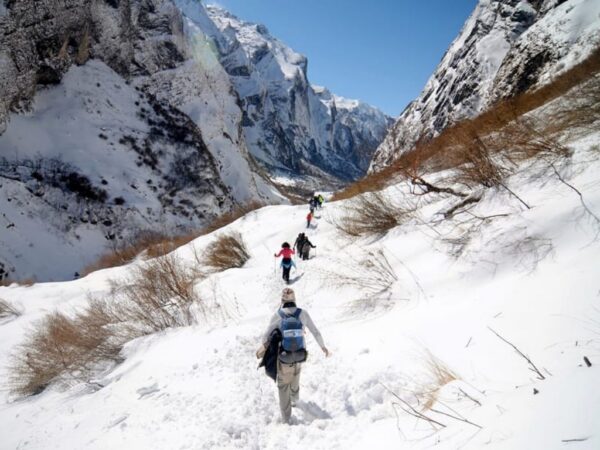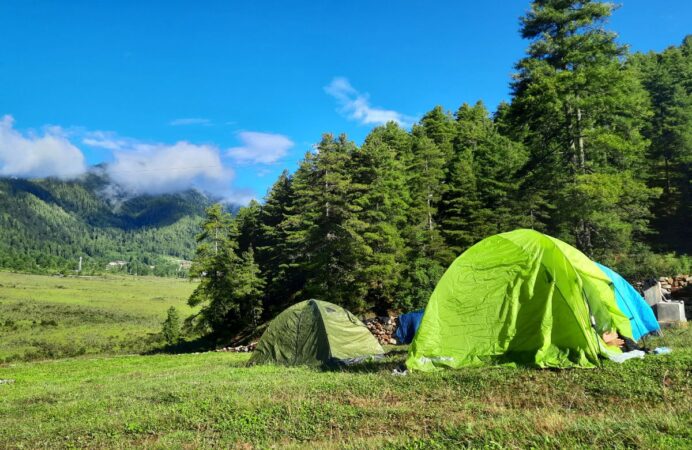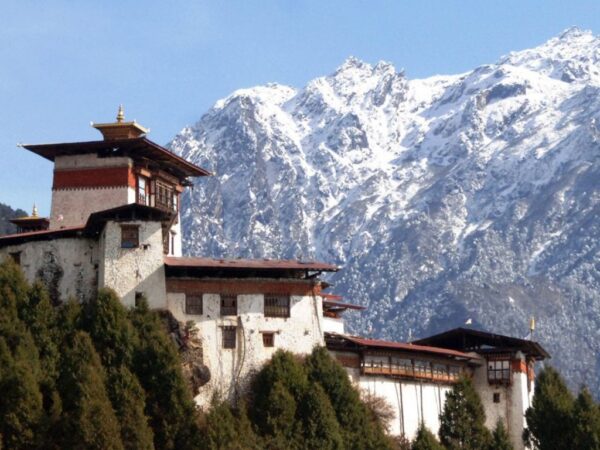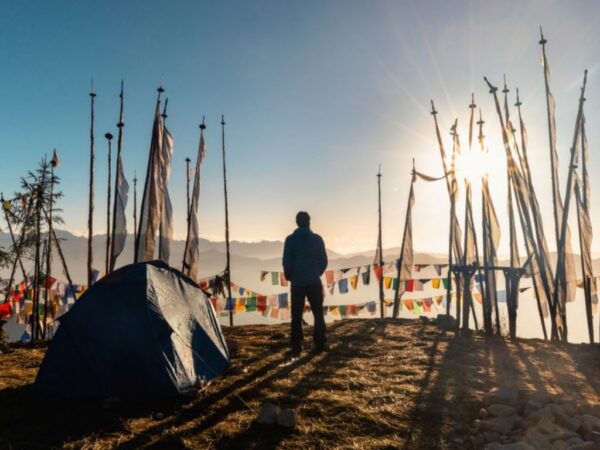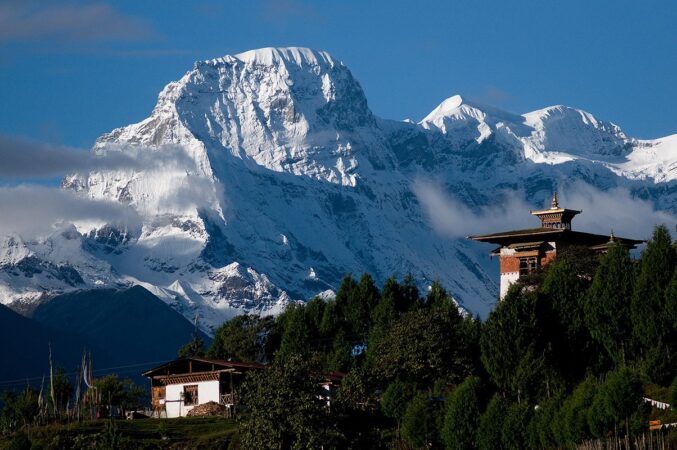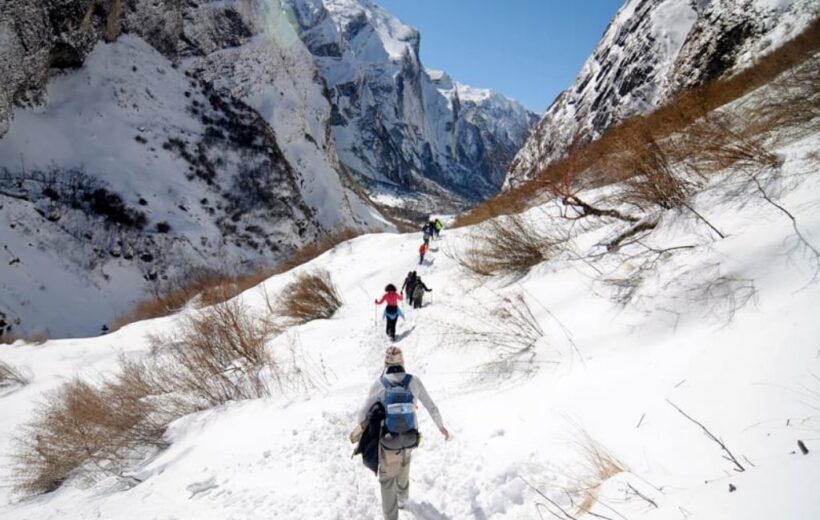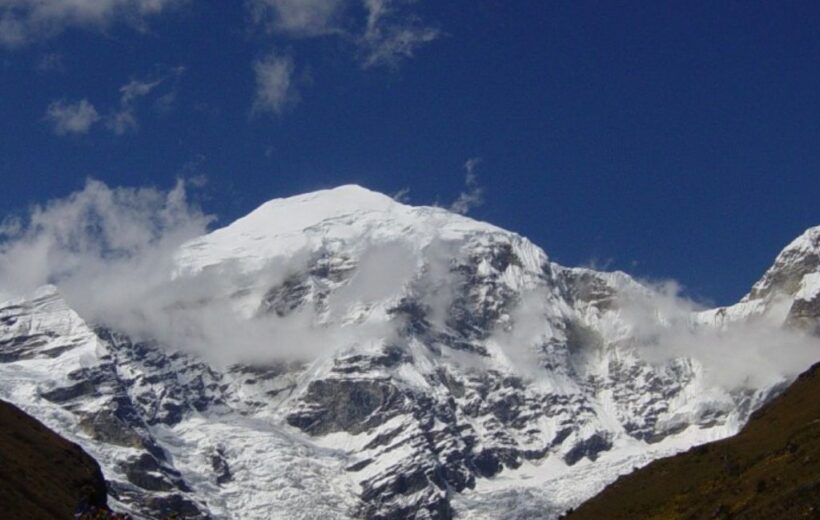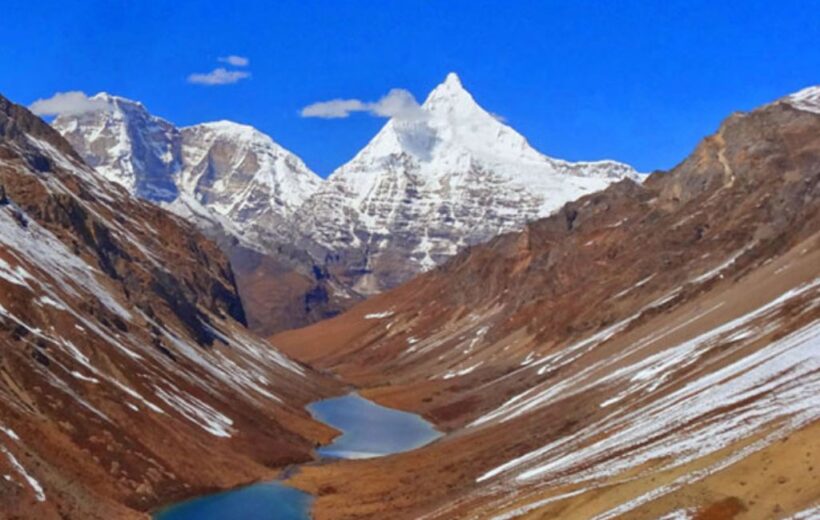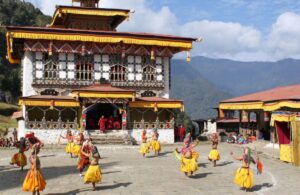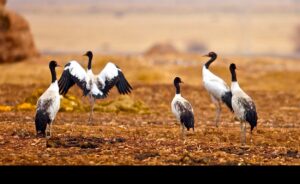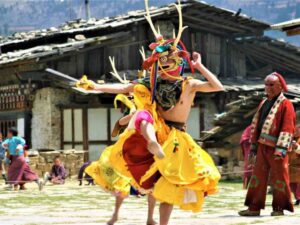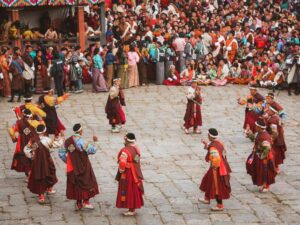Overview
The Jomolhari Trek is a 9-day adventure that begins at Gunitsawa Village and concludes at the picturesque Cherri Monastery. The trek takes you through diverse landscapes, starting with a journey from Sharna Zampa to Thangthangkha, followed by a trek to Jangothang, where you’ll enjoy a day of rest. The route continues through remote and scenic areas, including Lingshi, Shodu, Barshong, and Dolam Kencho. Each day offers stunning views of the Himalayan peaks, lush valleys, and traditional Bhutanese villages, making the Jomolhari Trek an unforgettable experience in the heart of Bhutan's wilderness.
Included/Excluded
- The Bhutan SDF
- All accommodations
- Meals and mineral water
- A licensed English-speaking guide
- A driver and vehicle
- Air fare
- A visa fee of US$40
- Alcohol
- Gifts/Souvenirs
- Travel insurance and personal bills
- Museums & Monument Fees
Tour Plan
Day 1: Gunitsawa Village – Sharna Zampa
This trek begins at Gunitsawa Village were you pass the army post. At the army checkpost your trek permit (provided by your tour operator) will be checked and endorsed. The campsite is on the opposite side of the river, not far from Gunitsawa.
Day 2: Sharna Zampa - Thangthangkha
On this long day, the trail continues with lots of small ups and downs. After going uphill through the river valley the valley finally narrows gradually to a mere path which descends to a meadow where a camp will based.
Day 3: Thangthangkha – Jangothang
If you did not see Mt. Jomolhari the previous evening, you will still have a chance to get a great view early this morning. This morning the trek continues up the Paro Chhu valley.
Day 4: Jangothang Halt
The rest day in Jangothang provides plenty of possibilities for day hikes with great views of lakes and snow capped mountains such as Jomolhari and Jichu Drake.
Day 5: Jangothang – Lingshi
The trail leads to a last settlement in the valley and drops to the Paro Chhu. Passing the lake of Tshophu (4,380m) you will climb up steeply to Bhonte La pass at 4,890 m, the highest point of this trek route.
Day 6: Lingshi – Shodu
The trail climbs up to the Yelila pass at an altitude of 4,930m. From the pass, on a clear day you will get an excellent view of Jumolhari, Tserimgang and Masanggang.
Day 7: Shodu – Barshong
The trail follows the Thimphu Chhu through rhododendron forests, past beautiful waterfalls along the way. The valley narrows till the path takes to the slopes and gradually ascends to the ruins of Barshong Dzong.
Day 8: Barshong – Dolam Kencho
The trail descends down to the Thimphu Chhu river valley, through dense forests of rhododendron, birch, conifer, maples and bamboos and then ascends to pasture lands. The camp is in a meadow.
Day 9: Dolam Kencho – Dodena
The trail continues through forested areas winding up and down and through a small pass. Langurs (monkeys) can be seen along the way. In Dodena, you will exit the Jigme Dorji National Park and reach the road head.
Jomolhari Trek - Finish
The trek finishes at the beautiful Cherri Monastery, while it is a 40 min hike to the monastery it is well worth it.
Tour Map
You may like
Frequently asked question
Itinerary is always flexible if you are travelling in a smaller group. You have a choice of eating in a different restaurant, however, the menu depends on the chef and usually it is a set menu but not necessarily the same menu every day.
It is in the tourism industry but it is not compulsory. It actually depends on the service rendered to you.
Yes, things that are not included in the tariff are all beverages, telecommunications, tips, laundry, massage and souvenir shopping.
Bhutan is well connected and every town has IDD services. Internet cafes are available almost everywhere. Cell phones can also be used but you need to get Bhutan prepaid SIM Card and recharge it. Recharge vouchers are available at every second shop in town.
You can exchange money in the banks as well as in the hotels were you are staying. Rates will be better in the banks plus US$ is acceptable in almost all of the shops in town.
It cannot be safer anywhere else in the world.
Bhutan is all season tourist destination for cultural tours. However the month of February, March, April, and September, October, November are considered the best time due to pleasant weather conditions. December and January are winter months and June, July and August, the rainy season. It is important to note that the climatic conditions during the winter months are not extreme. The average temperature would range from 10-17 degree Celsius during day time.
The money you have transferred will be with held by the Tourism Council of Bhutan till the day you depart. Travel Agents can only withdraw the money after your departure upon submitting your tour invoice. Therefore, your money is safe.
It is government rule that total tour payment must be remitted without which the government will not issue the visa.
Decide the number of days you want to spend in Bhutan according to your interest and budget.
Decide the date and the port of entry (You can fly into Bhutan from one of these cities; Bangkok, Katmandu, New Delhi, Calcutta and Dacca) into Bhutan.
Fill up the visa application form (You can download the visa application form here).
Remit the total tour payment (You can download the money transfer details here). It is government rule that total tour payment must be remitted without which the government will not issue the visa.
Once we have confirmed dates, port of entry, dully filled visa application form, and money received, we will process your visa.
Except for travelers from India, Bangladesh and Maldives, all visitors to Bhutan are required to obtain visa approval prior to their arrival, which will be processed by us.
Tourism is not restricted but the minimum daily tariff is set by the government. It is also necessary that all tourists must come through a registered tour operator to plan your itinerary and process your visa. Tourist cannot come on their own unless they are invited guest.
Druk Air operates daily flight (once daily) from Bangkok (Thailand) and four flights a week from New Delhi, Kathmandu and Calcutta (India) and two flights a week from Dacca (Bangladesh). There are different flight schedules for the summer and the winter seasons. For Druk Air schedules click on Flights Details or you can also visit Druk Air web site at www.drukair.com.bt . You can also enter Bhutan via Bagdogra Airport, Siliguri (West Bengal) in India. It has regular flights from New Delhi (twice daily).
Bhutan is connected to the outside world through Druk Air (Royal Bhutan Airlines), the national carrier which is the only airline operating flights in and out of the kingdom.

